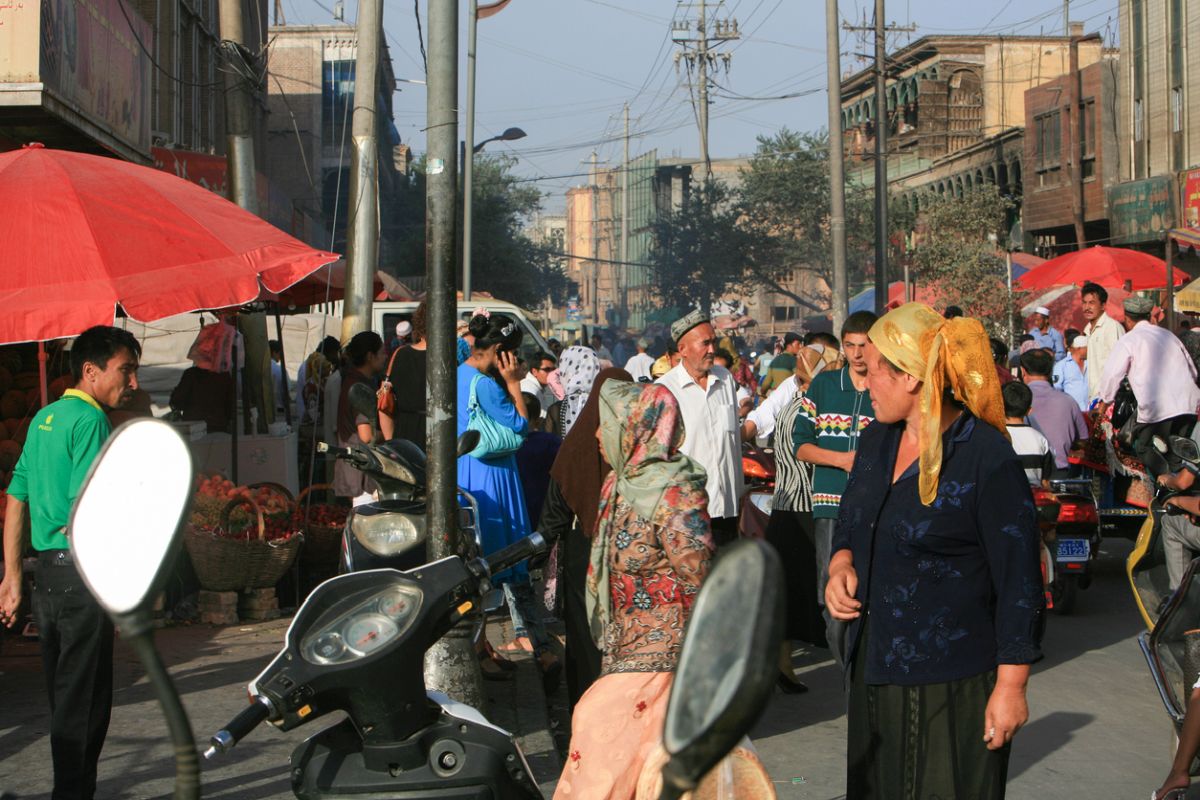Comments on Congress win: CPM leaders back Vijayaraghavan
A day after Congress and Muslim League leaders alleged that CPI-M polit bureau member A Vijayaraghavan sought to provoke majority communalism through his statement
The app also records “suspicious” behaviour, which can include legal activities such as using the back door of a home, not socialising with neighbours.

People in thePeople in the main market in Kashgar, Xinjiang, Chinamain market in Kashgar, Xinjiang, China (Photo: iStock)
Chinese authorities are using a mobile app to collect vast amount of data for illegal mass surveillance and arbitrary detention of Muslims in the western Xinjiang region, said a Human Rights Watch report on Thursday.
The report, “China’s Algorithms of Repression: Reverse Engineering a Xinjiang Police Mass Surveillance App”, says the app allows state security officials to link a person’s national identity card number with biometric data, such as blood type and height, their “religious atmosphere”, political affiliation and even “unusual” utility meter readings.
Advertisement
The New York-based rights watchdog said its report “presents new evidence about the surveillance state in Xinjiang where the government has subjected 13 million Turkic Muslims to heightened repression”.
Advertisement
Several international organizations have highlighted and denounced China for detaining Muslims in internment camps.
The Chinese government justifies these camps as part of its counter-extremism and counter-terrorism efforts and only releases an individual who “has been transformed”.
The app also records “suspicious” behaviour, which can include legal activities such as using the back door of a home, not socialising with neighbours or buying too much gasoline, CNN reported.
It is linked to the all-encompassing Integrated Joint Operations Platform (IJOP), which monitors personal relationships and detects irregularities such as people using a phone that is not registered to them.
“Our research shows, for the first time, that Xinjiang police are using illegally gathered information about people’s completely lawful behaviour — and using it against them,” said Maya Wang, senior China researcher at Human Rights Watch.
“The Chinese government is monitoring… (and) picking out those it mistrusts and subjecting them to extra scrutiny.”
The non-profit said between January 2018 and February 2019, it was able to reverse engineer the mobile app used to connect to the Integrated Joint Operations Platform, the Xinjiang policing programme that aggregates data about people and flags those deemed potentially threatening.
The examination of the app’s design, which at the time was publicly available, “revealed specifically the kinds of behaviours and people this mass surveillance system targets”.
“The police platform targets 36 types of people for data collection. Those include people who have stopped using smartphones, those who fail to ‘socialize with neighbours’, and those who ‘collected money or materials for mosques with enthusiasm’,” said the report.
The authorities, according to the report, have programmed the app in such a way that many legal and lawful activities are seen as an indicator of a “suspicious behaviour”.
The HRW has asked the Chinese government to close down the surveillance programme and delete all the details it has collected. But, the Chinese authorities had previously called the watchdog an “organization kept making “false allegations on China-related issues all along”.
The rights group also stressed that the “concerned foreign governments should impose targeted sanctions”.
In March, China confirmed arresting 12,995 alleged terrorists since 2014 in the region, disbanded 1,588 “violent and terrorist gangs” and seized 2,052 explosive devices”.
Advertisement